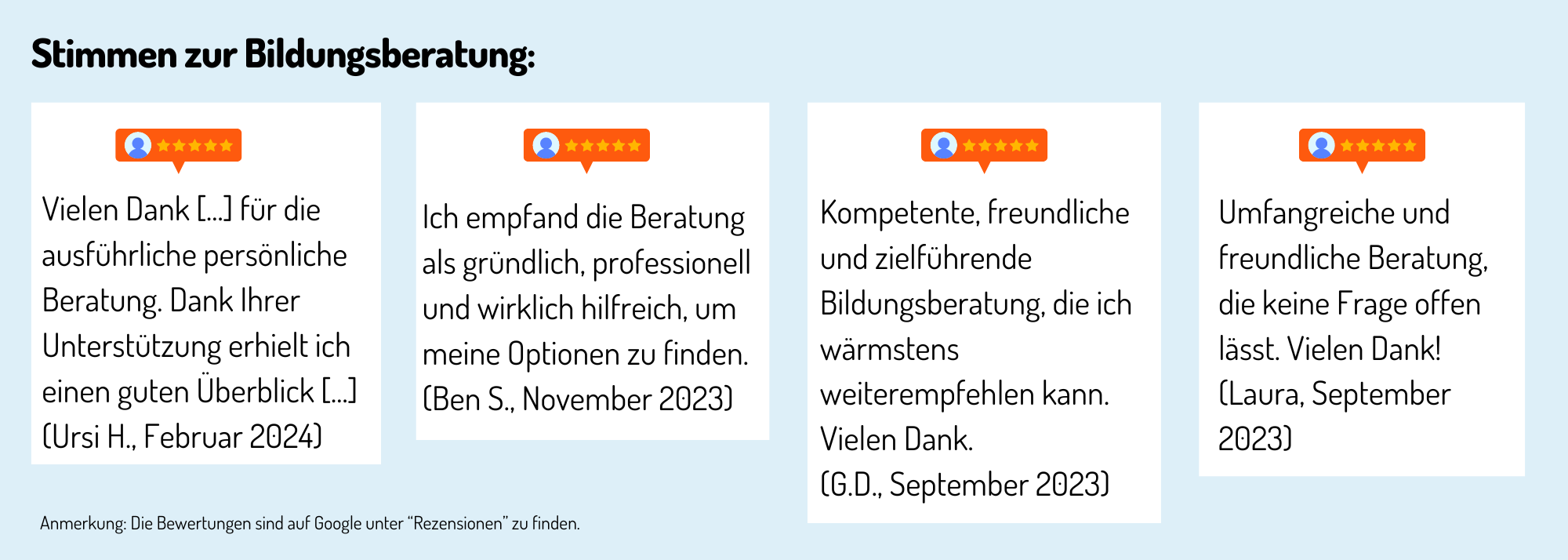Compliance training/further training, courses, providers, information
Are you interested in training, further education, a course or seminar on compliance? - Here you will find suitable schools as well as further information, tips and resources for further training.
Would you like personal advice on compliance training? Contact the provider of your choice via the "Free information on the topic..." button or download the free course documents - without obligation, quickly and easily.
Tipps und Entscheidungshilfen für die Ausbildungswahl
In a nutshell, compliance refers to a company's adherence to rules and regulations. It is therefore about compliance with statutory provisions (laws), guidelines and voluntary codes, i.e. codes of conduct. The responsibility for compliance, i.e. adherence to binding provisions such as legally binding regulations and internal company guidelines, generally lies with the Management Board.
Compliance is therefore not just an abstract term originating in the Anglo-American world, but an unambiguous set of rules that is binding and valid. It can uncover violations but also serve as prevention. This requires the establishment of a systematic, customized and continuously updated compliance management system (CMS). It usually defines precautionary measures, including targeted training, i.e. providing information and passing on information to employees. The CMS also includes the monitoring and control of internal company processes and procedures. Qualified specialists with compliance training/further training or a course/seminar, who not only have specific specialist knowledge but also practical experience on the subject, are therefore in demand.
Compliance can be found in practically every company and sector. Not only in the highly regulated sectors, but also in administration, universities, NGOs or in industrial, commercial and service companies. A compliance training course/seminar provides knowledge of compliance, regulation, compliance management systems (CMS), risk analysis, corporate governance, accounting, white-collar crime, corruption prevention, HR compliance, antitrust law prevention, fraud and money laundering prevention as well as common compliance tools.
Ambitious lawyers, attorneys, auditors, managers, board members or compliance officers who want to deepen their knowledge and expand their skills will certainly benefit from a compliance training/course.
Questions and answers
Erfahrungen, Bewertungen und Meinungen zur Ausbildung / Weiterbildung
Haven't found the right training or further education yet? Benefit from educational advice now!
Further training is not only important in order to maintain or increase professional attractiveness, investing in training or further training is still the most efficient way to increase the chances of a pay rise.
The Swiss education system offers a wide range of individual training and further education opportunities - depending on your personal level of education, professional experience and educational goals.
Choosing the right educational offer is not easy for many prospective students.
Which training and further education is the right one for my path?
Our education advisory team will guide you through the "education jungle", providing specific input and relevant background information to help you choose the right offer.
Your advantages:
You will receive
- Suggestions for suitable courses, seminars or training programs based on the information you provide in the questionnaire
- An overview of the different levels and types of education
- Information about the Swiss education system
We offer our educational counseling in the following languages on request: French, Italian, English
Register now and concretize your training plans.




